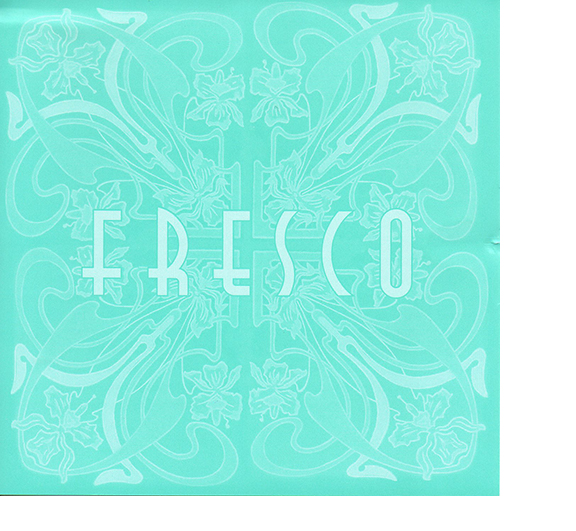FEBRUARY 2014, 'Gustavo Corrales Romero: FRESCO' KyG Productions
FEBRUARY 2014, 'Gustavo Corrales Romero: FRESCO' KyG Productions Reviewed by RAY PICOT
Reviewed by RAY PICOT
In his first solo CD, Palimpsesto, the pianist Gustavo Corrales Romero explored his Cuban heritage, and in his latest release, Fresco, he enterprisingly includes more unpublished Cuban works (Fariñas) and some first recordings (de Corales and Valdés) whilst drawing in some more familiar names from the Caribbean, Argentina, Mexico and Venezuala. The music is mostly folk inspired, and unapologetically celebrates the spirit of dance and song, which is played in the most captivating manner.
The journey starts out in a typically lyrical Cuban vein, with a well-chosen collection of characteristic pieces by Luis González, Valdés and Carlos Fariñas, which play like a recital within a recital. No matter that the music may be unfamiliar, it is full of felicities and an admirable antidote to wet, winter evenings.
Many of you will be familiar with a recital favourite, the vivacious Joropo by Moisés Moleiro. This is played with great élan by Romero who catches the pieces’ sunny optimism and quick-fire rhythm to perfection. The mood relaxes with the pianist’s touching arrangement of Agustin Barrios’ guitar piece, Vals No. 3, and the gentle nostalgia of two dances by the Curaçaoan composer, Wim Statius Muller, who successfully pursued musical and diplomatic/security careers. These dances come from his set of Antillean Dances Op. 2 which celebrate his Dutch-Caribbean heritage. If they whet your appetite for more I recommend the composer’s own renditions of these delightful scores on the Qualunque label.
Less familiar fare follows with a Soledad and a more complex Sarabandio by Arubian composers Juan C. Lampe, and Karen D. Russel de Corrales respectively, who clearly deserve to be better known.
Carlos Guastavino and Manuel Ponce both created characteristic piano music, and they are nicely represented respectively by the songful Cantilena No. 1, Miniaturas 1 and an exquisite Intermezzo.
Hailing from Columbia, Antonio María Valencia’s lyrical Palmira provides an effective contrast before a selection of three works a piece from Ernesto Lecuona and Ernesto Nazareth, in which a more familiar work is interspersed with two less well-known pieces. The finale is provided by the Cuban, Carlos Fariñas, in the shape of Altagracia, an evocative and complex tango, which contrasts sections of emotional intensity and more harmonic daring.
Whilst much of this music is easy to assimilate and of modest complexity, it is very effectively sequenced and masterfully played by a pianist who understands the idiom to perfection and does not overplay it. My only quibble is that the booklet notes could have given more detailed information beyond a project overview, at least through an on-line link. The CD is, I note, available on-line and in London at Harold Moores' record store.
Site design and content copyright © 1998-2023
The Iberian and Latin American Music Society, all rights reserved.
ILAMS is a registered charity, No. 1092749